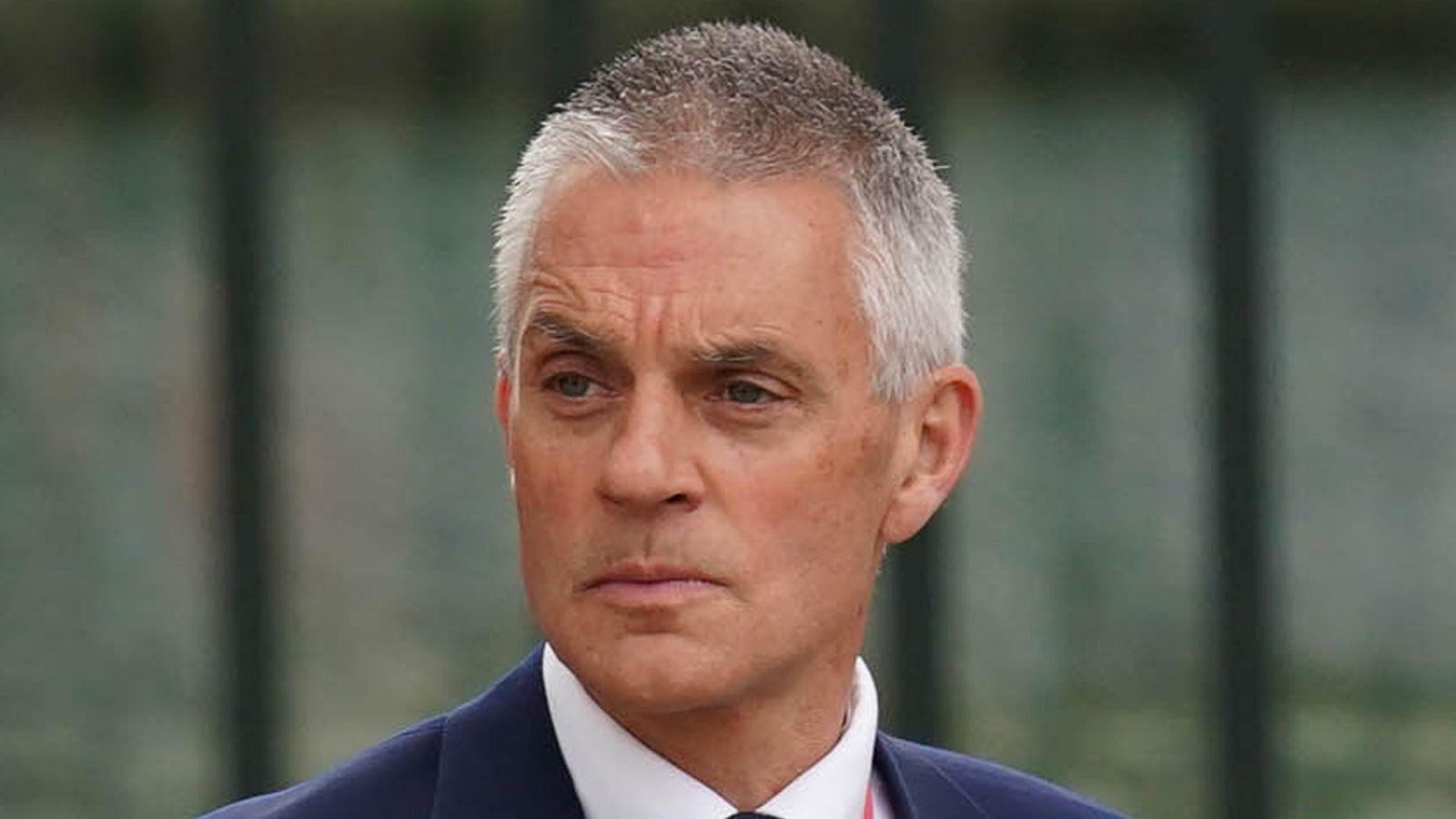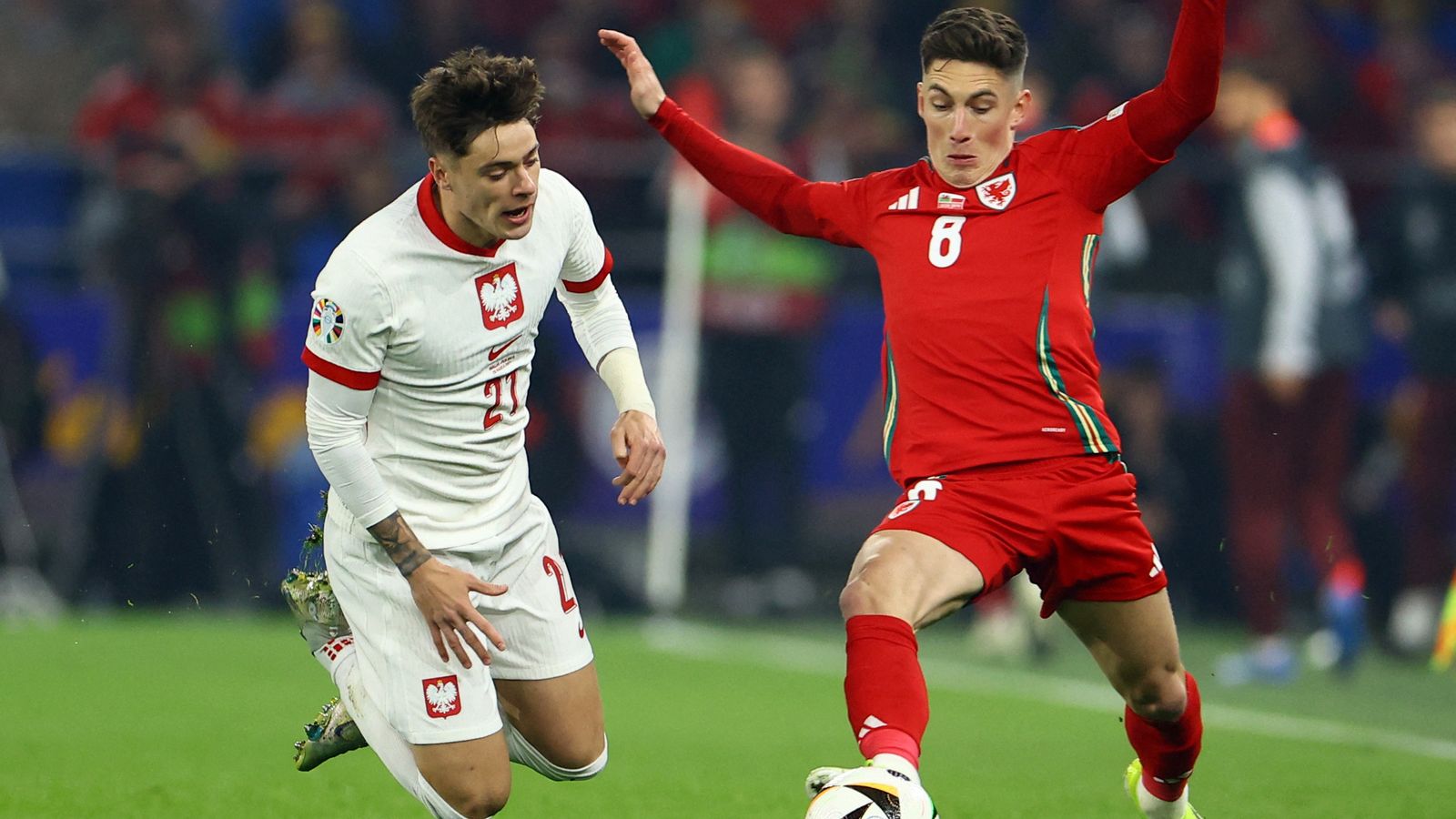The BBC director-general has said that a commercial model for the licence fee would be a mistake that could leave the UK’s media market “looking exactly like America”.
Speaking to The UK Tonight with Sarah-Jane Mee, Tim Davie said: “In my view, it would be actually the wrong choice for society, for who we are. There are bigger things at play here if you just have a commercial market.
“I don’t want to see our media market look exactly like America. This is a choice for all of us. It’s not imposed by the BBC. It’s a choice for what kind of media market we have.”
He also confirmed to Sky News that the investigation into newsreader Huw Edwards is ongoing.
Mr Davie recognised the need for licence fee reform, but added: “I’m not here just simply to drive the licence fee higher. That’s not my job. My job is to make sure that everyone, every household gets good value for money, and currently nearly every adult uses the BBC every month, so we are offering, we think, good value.”
Amid a cost-of-living crisis, the licence fee has been frozen for two years at £159 but in 2023 the government announced it would use a lower rate of inflation to increase the household charge from April to £169.50 a year.
The freeze and rising inflation have driven the broadcaster to reassess its priorities as it seeks to make £500m of savings, with Mr Davie announcing on Tuesday that a further £200m of savings will need to be made.
Speaking at a Royal Television Society (RTS) event in London to discuss the future direction of the BBC and its role in the UK, Mr Davie revealed the corporation will be launching its “biggest-ever consultation process” next year, for the public to drive the debate on its future.
The BBC has recently revealed it’s looking into running adverts in podcasts on third-party platforms from next year.
Doctor Who and David Attenborough
As to other platforms, Mr Davie told Sky News: “I want to protect on my watch a commercial-free BBC offer,” adding that there will never be “ads on BBC One”.
He said while commercials may be added to third party platforms outside the UK that are sharing the BBC’s content, viewers at home in the UK wouldn’t notice any difference.
He said: “The reason why Doctor Who looks slightly more well-resourced than it did two seasons ago is because of a wonderful deal with Disney, and if you take David Attenborough, with some of the finest programs of our generation, they’re often majority funded by commercial companies internationally.
“So, we can invest as long as we keep editorial control of our values, and I think actually we should grow the BBC’s commercial arm.”
So, in a crowded market, what was the BBC’s unique selling proposition?
Mr Davie told Sky News: “We need to double down on where we’re different… It’s really important we don’t just follow the market.”
He said there were three key areas of importance, firstly pursuing truth with no agenda, secondly focusing on UK content and thirdly coming together for big communal moments such as the Euros, Glastonbury or even the BBC’s latest TV hit, the reboot of Gladiators.
Acknowledging the success of commercial channels including Sky and ITV he said he was a supporter of their work, and rather than competitors, “we should be working together”.
The importance of a free press
On whether trying to provide something for everyone was a losing battle for the BBC at a time when more and more outlets are personalising content for their viewers, Mr Davie was clear.
“I’d argue it’s more needed and less outdated than ever… An algorithm or a personalised service can drive you to content, but there are societal effects of that. It is more polarised. You are in your echo chamber.
“I think if you just wholly give it over to market, we know where that story leads. 70% of the world doesn’t even have a free press now, and that would affect us in terms of our ability to hold politicians to account. These things are important.”
In an election year, with a change of government a possibility, would a new leading party signal a change of fortune for the BBC?
Mr Davie said: “The one thing I will not do is start guessing what would happen in elections or anything else. I just think the BBC has to focus on its business and get on with its work.”
‘The world is changing – we have to listen’
Asked if he’d sat down with opposition leader Keir Starmer to discuss Labour’s policy on the licence fee, Mr Davie said: “Of course we’re talking to the parties.
“And it’s also right that we look to what’s the right level of reform for the licence fee, but I would be both open-minded and appropriately cautious that we’ve got something precious in the UK.
“The last thing the BBC can do is just sit and say nothing’s changing because the market’s changing, the world is changing. And I think we have to listen.”
As for where the BBC might be in 20 years’ time, Mr Davie said: “Where the rest of the world has become even more polarised, the algorithms have got narrower and narrower around your personalisation.
“I [hope the BBC will provide] a space that is completely unique because it brings people together and that will be incredibly precious. And hopefully that is funded in a way that preserves public service broadcasting for all. That’s worth a fight.”
Update on the Huw Edwards scandal
Also asked by Sky News for an update on the investigation into newsreader Huw Edwards, who was accused of paying a teenager thousands of pounds for sexually explicit photos last year, Mr Davie confirmed the process was ongoing.
He said: “This is absolutely something we need to work through fairly and appropriately with an individual. It’s not something I talk about publicly… We’ll work through the process fairly and appropriately.”
Mr Davie would not confirm whether or not Edwards would at any point be returning to the TV screen.










